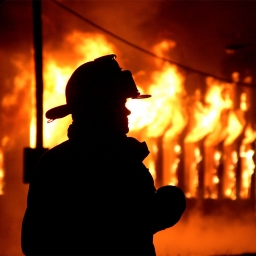Government Employees Bear the Burden of Cutbacks
 When I was in elementary school, and teachers would ask us what we wanted to be when we grew up, the answer was usually “an astronaut!” and then we would get asked what ELSE we would want to be in case the space career didn’t work out. Then the responses were fire fighter, police officer, or teacher. All of which are government employees. When we got older and realized there were a whole lot more choices out there, it was still understood that a job with the government would provide good pay, good benefits, and a good future with job security.
When I was in elementary school, and teachers would ask us what we wanted to be when we grew up, the answer was usually “an astronaut!” and then we would get asked what ELSE we would want to be in case the space career didn’t work out. Then the responses were fire fighter, police officer, or teacher. All of which are government employees. When we got older and realized there were a whole lot more choices out there, it was still understood that a job with the government would provide good pay, good benefits, and a good future with job security.
Government Employee Salaries
Things have definitely changed. A career in law enforcement and elementary school teaching will require a degree and hold average salaries of $52,374 $53,842, respectively. The average salary for a fire fighter is $43,208, with need for specialized training and/or a degree.
The benefits that used to accompany public sector jobs can no longer be taken for granted. When the government needs to save money fast, they tend to aim for the low-hanging fruit: government employees. Whether they are laid off, their wages are frozen for years, or they are furloughed, it is now understood that government employees tend to be the collateral damage of political maneuverings.
Overlooking Government Employees
Taxpayers tend to forget that a large part of their taxes go toward paying government employees’ salaries, who may be sharing in their own hardships when times get tough. However, chasing away talented employees from government jobs is a recipe for substandard service, as is demoralizing those who choose to stay.
When companies defend the exorbitant pay of their CEO’s, they say they need to offer these large paychecks to stay competitive and attract the best talent. It’s really the same with any job: in order to attract and keep good employees, companies need to pay them well, offer good benefits, and make it a job that people will want to do.
Now consider police officers. We have municipalities that can’t afford enough officers for the number of people they are expected to serve and protect, and those they can afford won’t get raises so governments can meet their budgets. What kind of morale do officers have when they cannot get the equipment they need, are overworked, overstretched, and haven’t seen a decent raise in years? What happens when the people they are sworn to serve and protect do not support them on a basic level of fair compensation for what is expected of them? Don’t we want to attract the best candidates to this career?
Teachers’ starting salaries are terribly low, yet the competition is fierce. The profession attracts those who want to make a difference to children. There is always talk about how a good teacher makes a difference in a child’s life and a bad teacher can be devastating. Imagine the candidate pool if a teacher’s salary would actually be enough to begin to pay back a graduating student’s loans? Imagine school districts with budgets big enough to afford more teachers to make the student to teacher ratio more favorable?
Government Employees Keep America Going
When we worry about pollution, what is in our food, about climate change, about our health, do we realize our taxes go to pay salaries for employees of the EPA and FDA? That scientists make breakthroughs due to funding from government grants? Private companies cannot regulate or provide oversight to private companies. Oversight must be done by a neutral party, and the government is the only choice to administer to the public good.
No matter the political affiliation, it is important to remember the people who may be affected most by government cuts ultimately is ourselves: standing in line at the DMV, sitting dazed at the side of the road after a car accident, scared and confused after a robbery, sitting in a restaurant wondering when it was last inspected by the Health Department, and sitting with our child’s teacher at parent-teacher conferences. When we cut taxes, to the detriment of government employees, we are hurting ourselves.